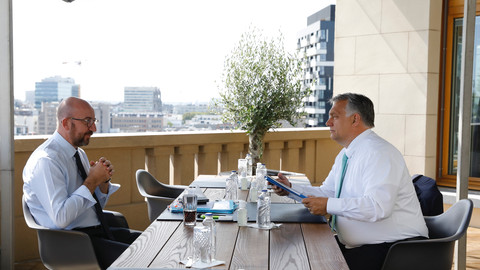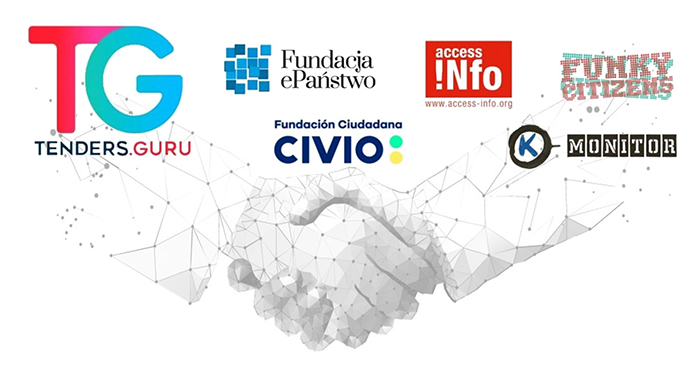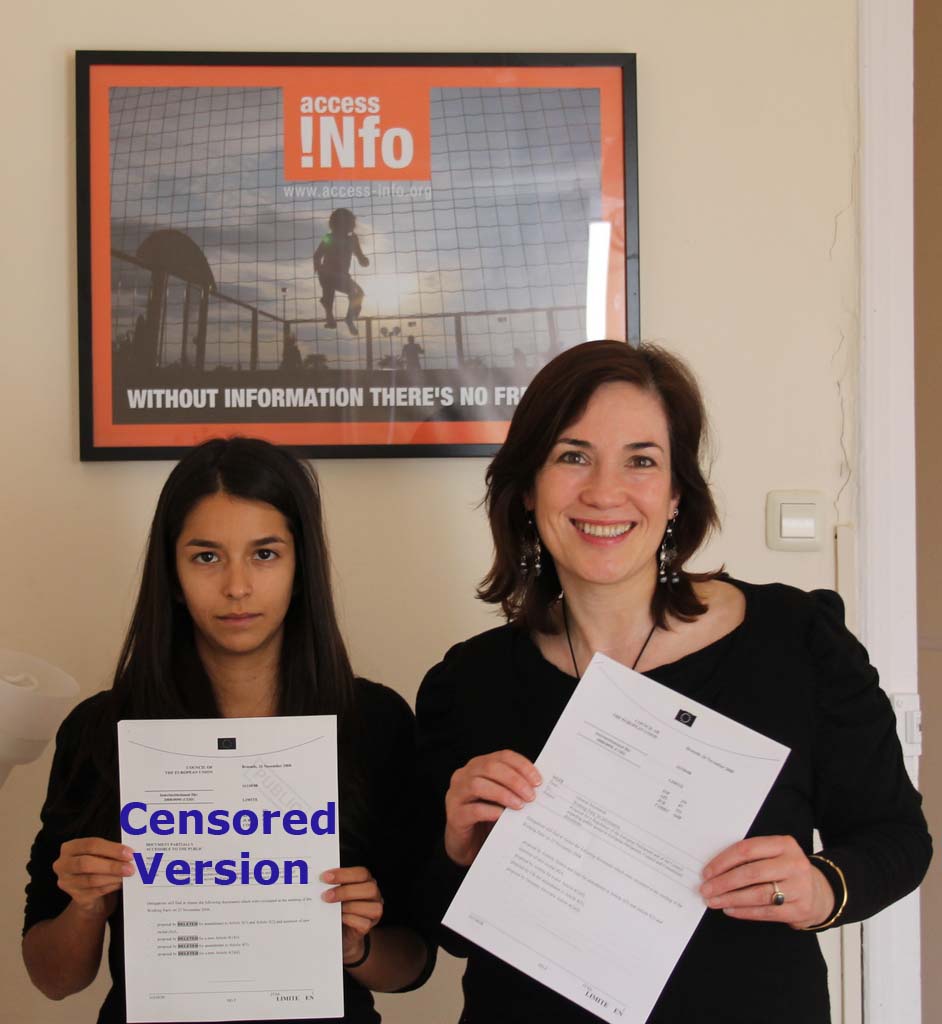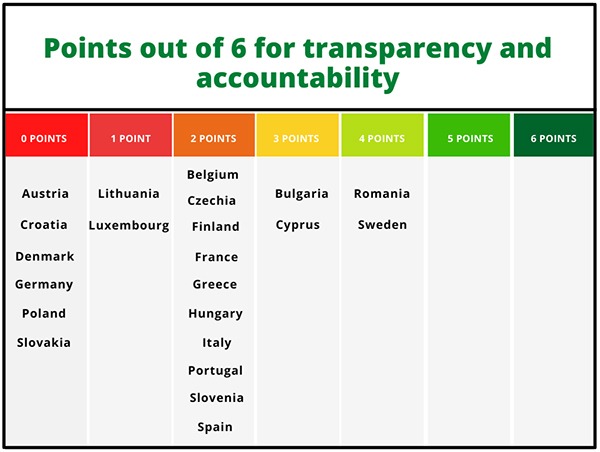A recent report by the Open Procurement EU Coalition warns that the EU is on track to repeat corruption scandals like those that arose during the pandemic. Co-authors Rachel Hanna and Helen Darbishire: “Business as usual isn’t good enough”.

Riding out what seems to be the tail of the Covid-19 pandemic at least in this part of the world, the European Union is now directing its full attention towards the post-pandemic economic recovery. The massive €672.5 billion recovery package contained in the Resilience and Recovery Facility (RRF) is causing quite a stir. And for good reasons: politicians from Commission President Ursula von der Leyen to Poland’s ultraconservative Prime Minister Maciej Morawiecki seek to claim the money as a personal political success in big public PR campaigns, while financial hawks in some capital cities fear national liabilities and misappropriation of the funds for autocratic member state governments’ nepotistic networks and pet projects.
It is thus no surprise that civil society is following policy developments around the fund with meticulous scrutiny. To this end, a pan-European network of NGOs and activists recently established the Open Procurement EU Coalition. In its own words, this research and campaigning platform “aims to stop procurement funds siphoning off and has a plan that will help”. The Coalition counts NGOs from across the EU, including Italy, Poland, Hungary, and Belgium among its members.
In its own words, the Open Procurement EU Coalition “aims to stop procurement funds siphoning off and has a plan that will help”.
In a recent op-ed on Euractiv, the Coalition sounded the alarm bell. If member states do not vastly improve their procurement transparency rules, they argued, “EU recovery plans will be a waste of time and money”. In recent reports, the Open Procurement EU Coalition and the associated Tenders Guru project identify various shortcomings in the transparency of national procurement laws governing the disbursement of billions of EU public funds and offer recommendations for EU and national procurement systems, using a scoreboard and other visuals to underline the urgency of their findings.
The Open Government in the EU Blog spoke with two of the coalition’s participants, Rachel Hanna and Helen Darbishire, to learn more about the Coalition and its work. Rachel Hanna is a legal researcher and campaigner in the Open Procurement EU Coalition on behalf of the Madrid-based transparency advocacy organisation Access Info Europe. Helen Darbishire is Access Info Europe’s founder and Executive Director, and in this capacity helped establish the Coalition.
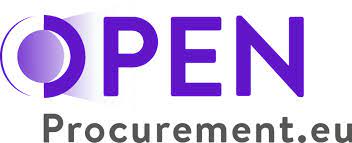
Open Government in the EU Blog: What is the Open Procurement EU Coalition, and what prompted its members to band together?
Helen Darbishire: The Open Procurement EU Coalition is a collaboration of non-government organisations and professionals working together to advance openness in procurement within the EU, from the planning to implementation of public contracts.
The Coalition’s creation comes as a direct response to the abuse of emergency procurement procedures and the subsequent corruption scandals that came to light during the pandemic. These shed a spotlight on the cracks and pitfalls within the EU procurement system and made evident the obvious need for more transparency through reliable and complete procurement data and information on suppliers.
As procurement transparency is such a relevant topic at the moment, we noticed that a lot of individuals and organisations were working on procurement transparency. The Open Procurement EU Coalition was created to bring everyone together and to make our advocacy efforts more concentrated and impactful.
OGEU: How did you go about planning the investigation and the analysis? Were there many discussions about which indicators to use and how comparable they would be across EU member states?
Rachel Hanna: The Open Procurement EU Coalition decided to analyse Regulation 2021/241, establishing the Recovery and Resilience Facility (RRF) to see what spending transparency requirements were demanded of Member States.
We found that the management of RRF spending will happen at the national level, with the Commission stating that Member States’ national control systems will serve as the main instrument for safeguarding the financial interests of the Union. In terms of spending transparency, while Member States will have to collect data on the final recipient of the funds, including data on contractor and sub-contractors and their beneficial owners, this information is for audit and control purposes only.
Seeing as there is a lack of strong transparency obligations under the Regulation, we decided to analyse national RRF plans to look for commitments to open and accountable reporting on how that money will be used.
“There is a lack of strong transparency obligations under the RRF Regulation. The Commission states that Member States’ national control systems will serve as the main instrument for safeguarding the financial interests of the Union.”
In preparation for this analysis, we asked ourselves “what information is needed to ensure transparency over RRF spending so that multi-stakeholder monitoring can happen at the national level?”. We then defined the following six questions:
1. Proactive publication: Is there a requirement to proactively publish information on the implementation of the RRF plan? 2. Open Data: If yes, does the plan specify the format in which information must be published? 3. Portal: Is there a specific portal/website where information on RRF spending will be published? 4. Transparency on final recipients: Is data on final recipients made public? 5. Commission reports: Are reports to the Commission made public? 6. Audit reports: Are audit reports made public?
OGEU: To what extent did the rule of law crisis, which loomed in the background of last December’s EU budget negotiations, find its way into your report?
RH: The issues surrounding rule of law include whether EU rules on the use of EU funds are being followed, and there are multiple concerns about this not having been the case in a series of Member States. Funds have gone to the business empire of which the Czech Prime Minister Andrej Babis is the ultimate owners, something the Commission has identified to be a conflict of interest and Members of the European Parliament have expressed concerns about EU funds being distributed to oligarchs close to Prime Minister Viktor Orban in Hungary, a state many no longer consider to be a democracy. The European Parliament’s current law suit against the Commission for not acting on the Rule of Law mechanism is linked to this.
HD: We are now also seeing concerns being raised about Hungary’s anti-gay propaganda law, as they refer to it, which is a clear limitation on freedom of expression and an attack on the fundamental rights of the LGBTQI community. There are similar problems in Poland with its LGBTQI-free zones. What we see from Access Info is that where there is a lack of transparency, abuses in the use of money can occur much more easily, and that money can be used to construct anti-democratic structures which then result in violations of human rights. Hence transparency, including of spending of funds, is an essential first step in protecting human rights and European democratic values.
OGEU: The scoreboard includes 22 EU member states. 7 are missing. Why is that?
RH: At the time the investigation took place (May 2021) only 22 Member States had made their national plans under the RRF public.
OGEU: To what extent is the current campaign, which focusses on integrity in public expenditure, different from your previous advocacy work dealing with FOI and open data?
HD: All of Access Info’s transparency work aims to contribute to protecting democracy and human rights, promoting participation, and helping fight corruption. There are multiple ways in which we take that forward, working both on the legal frameworks for the right of access to information, and looking at how transparency rules – including those on proactive publication and open data – are working in practice.
In that sense, this evaluation of the RRF spending is in line with our current work under the pan-European Tenders Guru project, which aims to reduce the risk of corruption in public procurement by collecting and analysing contracting data.
Access Info’s role in the Tenders Guru project has been to produce evidence-based legal and policy recommendations, directed at the national and EU level, on how to increase transparency of procurement. In the Tenders Guru Recommendations for EU Procurement, we call on the Commission to increase transparency of procurement in order to avoid corruption, tackle inefficient spending of public funds and permit civil society to play its watchdog role. In one of the recommendations under this project, we call on the Commission specifically to ensure the transparency of RRF spending. It was a logical next step to evaluate the transparency requirements linked to the RRF.
OGEU: The Recovery and Resilience Facility (RRF) is set to lead to the disbursement of €672.5m in public funds. What do you consider the greatest risk for its expenditure?
RH: The RRF will see hundreds of millions of euros spent across the EU before 2026. Without transparency over this spending, allowing multi-stakeholder monitoring, money will be spent behind closed doors and away from public oversight. It is then very likely that we will see a repeat of the corruption scandals that arose during the pandemic.
In not obliging Member States to release complete and open data on recipients of the RRF funds, civil society and investigative journalists will not be able to monitor spending. This means that monitoring will be left solely to national authorities. While this may be sufficient in some Member States, we have seen in the past how low levels of oversight in the spending of EU funds can lead to high-level corruption scandals.
HD: We also see the risk of some governments using these funds to fund projects for their supporters, rather than to ensure the goals of pandemic recovery and fighting climate change; this brings us back to the rule of law concerns and hence transparency has to be a top priority in the use of these large sums of money.
“The RRF will see hundreds of millions of euros spent across the EU before 2026. Without transparency over this spending, it is very likely that we will see a repeat of the corruption scandals that arose during the pandemic.”
OGEU: Is the situation really as bad as you sketch it? To what extent is the lack of officially announced transparency that you observe not simply business as usual in the world of public procurement?
HD: The problem with the RRF spending is that it will be subject to transparency requirements that, yes, do exist at the national level, but which our research has shown to be insufficient.
RH: Tenders Guru has carried out an analysis on the current EU procurement rules and subsequent transparency levels demanded in practice in procurement at national level. Various structural problems have been identified. We discovered unstructured, unverified and missing procurement data, disaggregated data spread across various portals, and public datasets that lack interoperability. Furthermore, below-the-threshold procurement typically remains wholly untransparent, as does company ownership data.
The lack of transparency and proper oversight of procurement procedures leads to corruption. We saw this during the pandemic: government officials offering contracts to well-known associates in the UK, or offering large contracts to companies without experience in health-care in Slovenia, middle men profiting over the sale of ineffective PPE in Romania, or a company unknown in the medicine retail industry importing vaccines in Hungary.
From these corruption scandals across the EU, it is clear to see that business as usual isn’t good enough. This is why we focused on transparency requirements under RRF spending. We must take the lessons learnt during pandemic spending and apply this to recovery spending.
“The lack of transparency and proper oversight of procurement procedures leads to corruption. We saw this during the pandemic across the continent, in the UK, Slovenia, Romania, Hungary…”
HD: Furthermore, it’s not just us saying this! The head of the EU’s anti-fraud office, OLAF, warned in June 2021 that the EU faces a “big risk” of abuses in the use of these funds because not all Member States are planning to report beneficiaries to the EU via an entirely voluntary system. It’s clear that we have a legitimate concern, and that’s why we are urging the European Commission to take action now. Every euro that is lost to corruption and nepotism is a loss for European citizens who are impacted by this health crisis and who will suffer from the negative impacts of climate change.
OGEU: In your ranking, Hungary and Bulgaria, Member States notorious for their nepotism, and which have repeatedly been marked as outliers in terms of institutional corruption by the European Court of Auditors, rank higher than countries like Denmark and Germany. Is the points system in your scoreboard really an accurate reflection of the situation that will likely emerge once the funds get disbursed?
The points allocated from our analysis are purely from what has been written in the RRF plans. Obviously, one thing is what is written on paper, and another is what occurs in practice.
While we do understand that some countries may have transparency requirement elsewhere that aren’t specified directly in the national RRF plan, with such high profile spending and such a high-risk of corruption, the public should be clearly informed on what information they can access on spending.
We do hope that the countries that scored low in our analysis do go on to be more transparent about spending than what is specified in their plans. Likewise, we hope those that scored highly stick to their transparency commitments.
OGEU: What, for you, would be the best possible outcome of this campaign?
RH: We would want the European Commission and Member States to ensure that national RRF plans meet the criteria laid out in the RRF analysis:
- Proactively publish information on RRF procurement and spending as user-friendly, timely, high-quality, well-structured and standardised open data. This should include publication of all public procurement contracts that are funded by RRF, information on final recipients of funds, reports on the implementation of milestones/targets and on monitoring and control to prevent corruption, and information on public consultations held with citizens and stakeholders on the creation of the RRF plan. - Create a single public portal where information on spending, implementation and control of RRF is proactively published. - Ensure that the national access to information legislation applies to all information regarding RRF. - Directly support civil society oversight to help uncover, prevent and deter corruption by establishing effective mechanisms to enable meaningful exchange of feedback between citizens and authorities. This can include availability of financial resources, effective mechanisms of participation and a general respect for civic space.
We have already seen improvements. The Ministry of Finance in Lithuania took on board our analysis of the Lithuanian national RRF plan and has stated that it will commit to more transparency and reveal more information on how the money will be spent. We hope to see these types of commitments across the EU.
OGEU: The report reflects the efforts of an impressive pan-European coalition of NGOs. Do you reckon the Open Procurement EU Coalition will continue on a more permanent footing?
HD: Definitely! There is a real interest in transparency of RRF funds and after the launch of the Coalition with the publication of our RRF analysis, the Coalition is steadily growing, with more organisations and individuals requesting to join.
We are also actively fundraising for more resources to continue and expand our work, so that there can be more extensive monitoring by civil society in every EU Member State.


